Vote centers nixed again in Monroe County for second time in a decade and a half
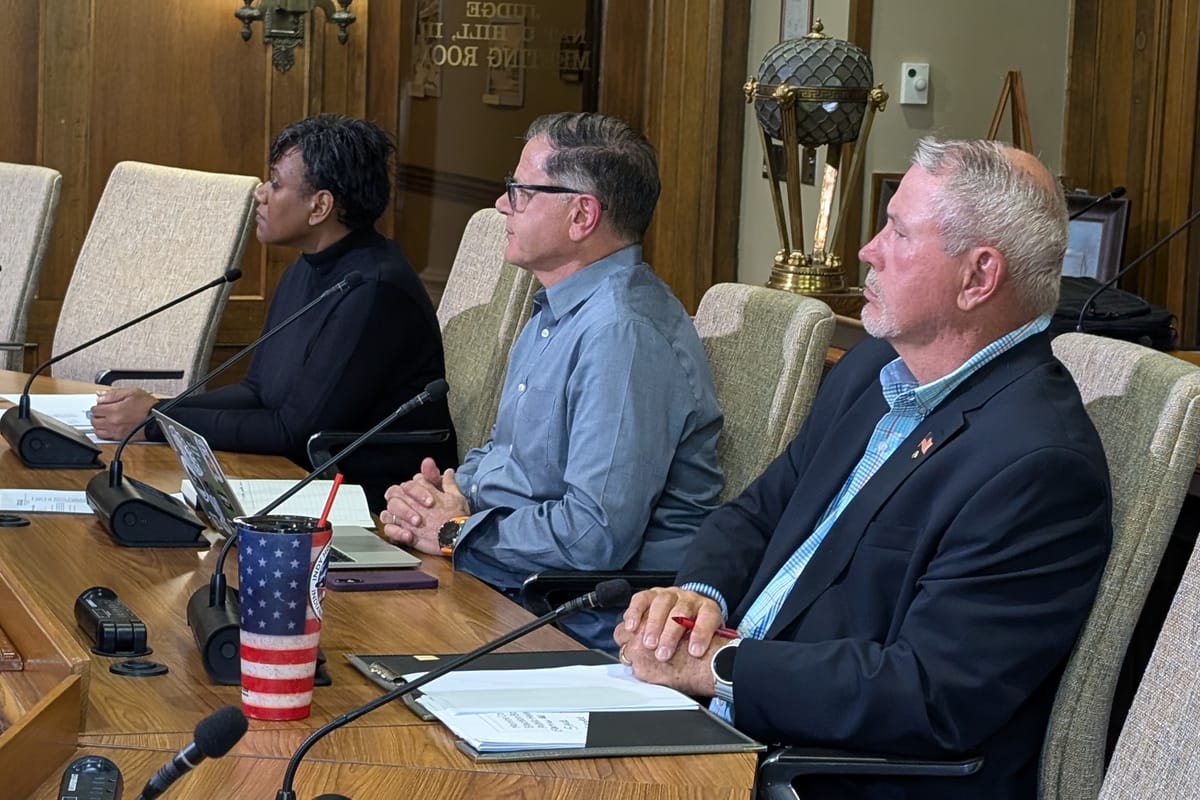

On Monday night, a 2–1 vote by Monroe County's election board, after the second of two public hearings, ended the chance that vote centers would be established for Monroe County for the 2026 election cycle.
That's because under state law, the decision required a 3–0 unanimous vote. Making up the current board are: Monroe County's elected clerk, Nicole Browne: the Monroe County Democratic Party's appointee, John Fernandez: and the Monroe County Republican Party's appointee, Danny Shields. The vote of dissent came from Shields.
The first hearing was held on April 7.
Vote centers are different from the kind of precinct-based polling locations that are currently used by Monroe County. At a precinct-based polling site, only voters from specified precincts can cast a ballot there. Vote centers are polling places where a voter who is registered in any precinct can cast a ballot. As of early 2025, 65 of Indiana's 92 counties have adopted vote centers.
A basic argument in favor of vote centers is that they make it more convenient for people to vote, and help reduce the number of people who wind up in the wrong place to cast a ballot.
Most, but not all, of those who spoke at Monday's public hearing were in favor of vote centers. Speakers in favor included current and past elected officials, including: former city councilmember Steve Volan, who served on the vote center study committee; county commissioner Julie Thomas; former county commissioner Penny Githens; and current county councilors Peter Iversen, Liz Feitl, and David Henry. State representative Matt Pierce attended the hearing but did not speak.
After the meeting adjourned, a shout from Henry was a measure of the frustration that many in the room felt: "Shame, Danny, shame!"
Henry had a big hand in the effort to undertake the statutory process that is required to convert a county from precinct-based voting to vote centers. Henry chaired the election board in mid-2023, when it voted to establish a vote center study committee.
On Monday night, Henry was reacting in part to the written statement that Shields had read aloud.
Shields was initially one of the appointees to the vote center study committee, which was something he mentioned in his statement: "I was there when the committee began. It is important to note that the committee was never entirely unbiased. They never considered whether vote centers are a good idea. They were always focused on getting them implemented."
The statement included a humorful poke: "There are some good things in the report like the fact that electronic polling books are good if the electricity works." That's an allusion to the description of power backups that are required at each polling site: "Loss of Power: Each location is accompanied by an Uninterruptible Power Supply (UPS) unit to ensure that equipment is available and the election continues."
One of the issues raised in connection with vote centers is whether they actually increase turnout. The Monroe County committee report appears to concede that they don't, and Shield concurred in his statement. From the report: "Interviews, email, and websites from eight other Indiana counties suggest that there was not a great impact in either voter participation or in the costs of running elections when adopting a vote center model."
Shields's statement went a step further, questioning the scope of an election board's responsibility. "One thing the committee never asked is whether increasing voter turnout is the main goal, or responsibility, of the election board? For the record it is not." Shield's continued, "The goal of the election board is to run fair, cost-effective, bipartisan elections for our government. It is the job of the political parties, civic groups, and educational organizations, among others, to drive voter turnout."
After Monday's hearing, Henry gave a statement to The B Square responding to Shields's remarks, which began: "Mr. Shields is flat wrong. This was the most thorough and bipartisan process we've ever had on election reform in recent memory. Republicans and Democrats worked side by side for nearly two years. We held public hearings, conducted site visits, reviewed the data, and opened every meeting to scrutiny. No stone was left unturned."
Henry continued, "For the Republican member of the board to vote no after all that isn't just disappointing—it's disgraceful. It's a betrayal of the facts, the process, and the voters of Monroe County." Henry added, "This wasn't leadership. It was obstruction yet again, plain and simple, simply because the local GOP could."
The prospect that Monroe County would adopt vote centers appeared already dead towards the end of 2024. That's when the Republican Party appointee to the three-member county election board, Judith Benckart announced she was resigning. Before she resigned, Benckart had expressed basic support of vote centers depending on their configuration.
But John Arnold, who was the pick of William Ellis, then-chair of the Monroe County GOP, to replace Benckart, was expected to oppose vote centers. At the Feb. 6 election board meeting Arnold met expectations when said he would vote against vote centers—a statement that preceded any of the required public hearings.
But a new chance that the work of a study committee, which was established nearly two years ago, would not be for nothing, came shortly after Arnold's early February statement. The new chair of the Monroe County Republican Party, Cory Grass, appointed Danny Shields to replace Arnold.
The appointment of Shields as the Republican Party's designee meant that vote centers seemed to have at least a chance for enactment in the county, when they appeared to be certain to fail during Arnold's brief service on the board.
On Monday night, an inkling that Shields would vote against vote centers surfaced when election supervisor Kylie Farris told the election board that she had received 296 comments in response to a post card mailing to households in the county—77% were in favor. Shields got confirmation that out of 65,000 postcards mailed, around 300 electronic form responses were received—he did not appear impressed.
Part of Shield's statement of opposition included this: "If people pay out of state tuition, they are not residents of Monroe County." That was a critique of the idea that Indiana University students should be able to vote as residents of Monroe County.
In one of the early iterations of the 2011 vote center plan, there were five locations proposed for the Indiana University campus. The number of campus locations in the proposal got trimmed back considerably in through the process, failed on a similar 2–1 vote on the election board, with the Republican appointee voting no.
The plan that was recommended by the vote center study committee for this year included just one university campus location, at the Indiana Memorial Union. Members of the committee at the end of the process were: Ilana Stonebraker, Noelle Conyer, William Ellis, Ami Gandhi, Zoe Harris, Stacy Kowalczyk, Debora Shaw, Stephen Volan, and Daniella Wheelock.
[2025 Vote Center Committee Plan]
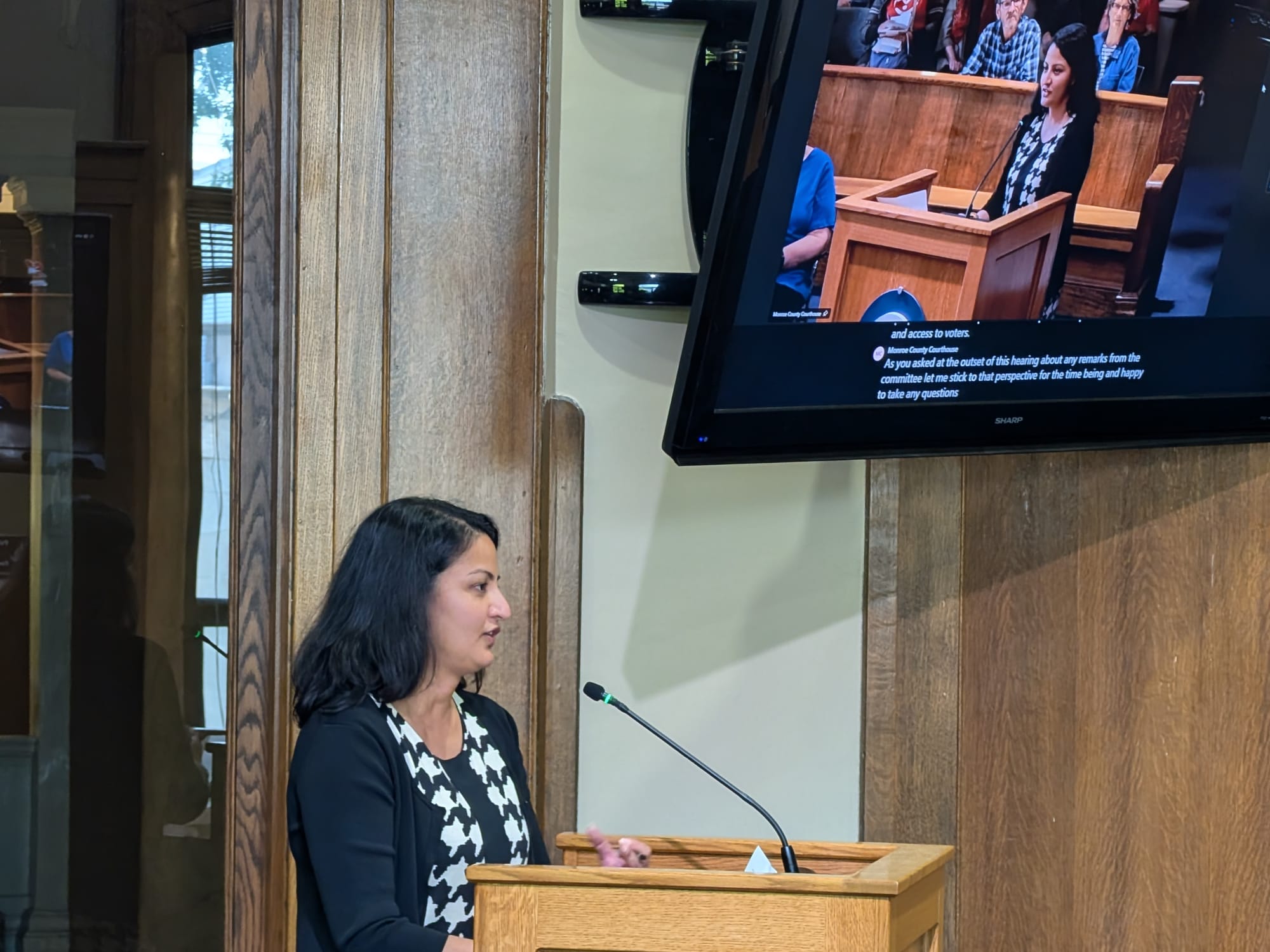
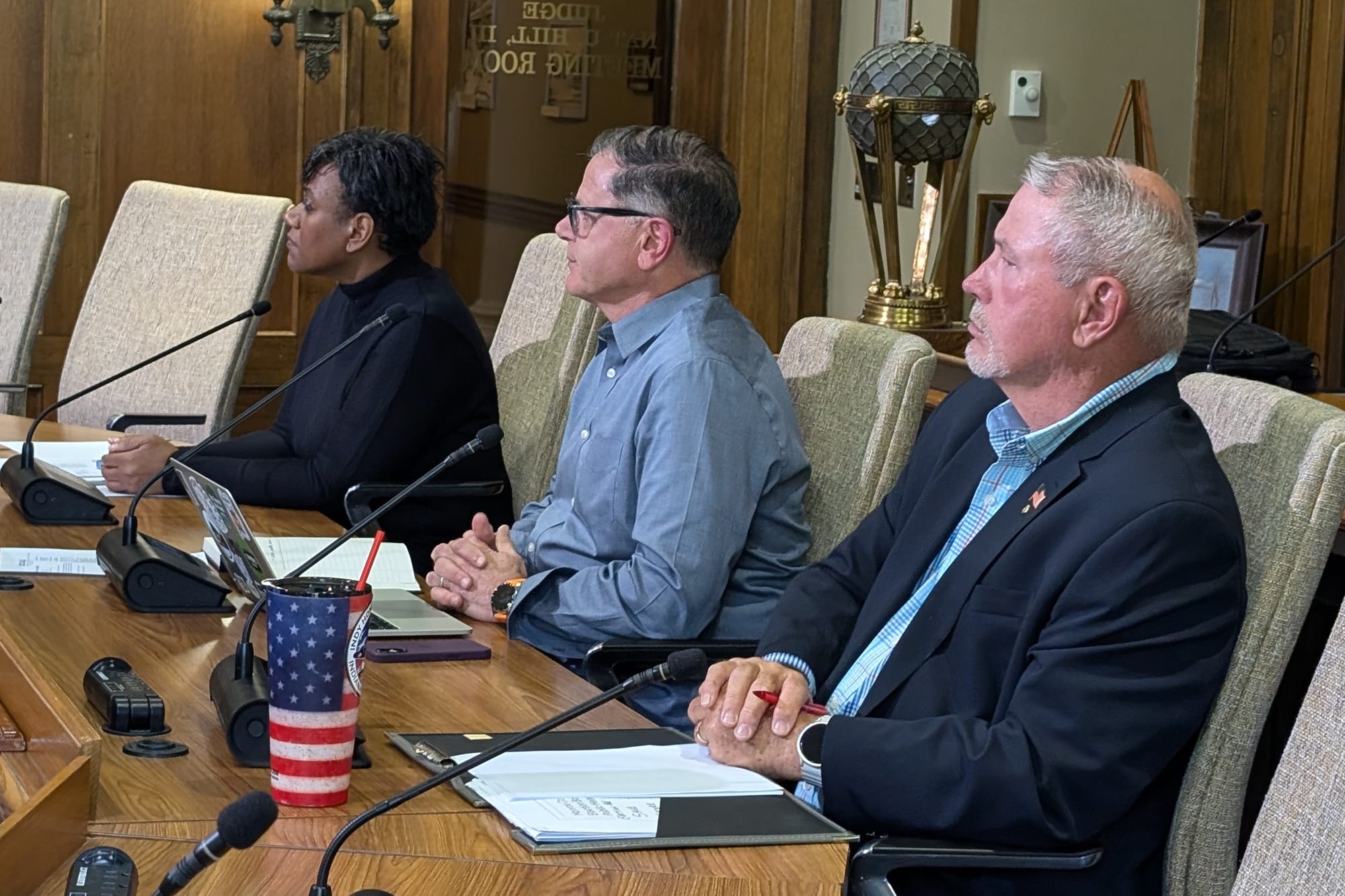
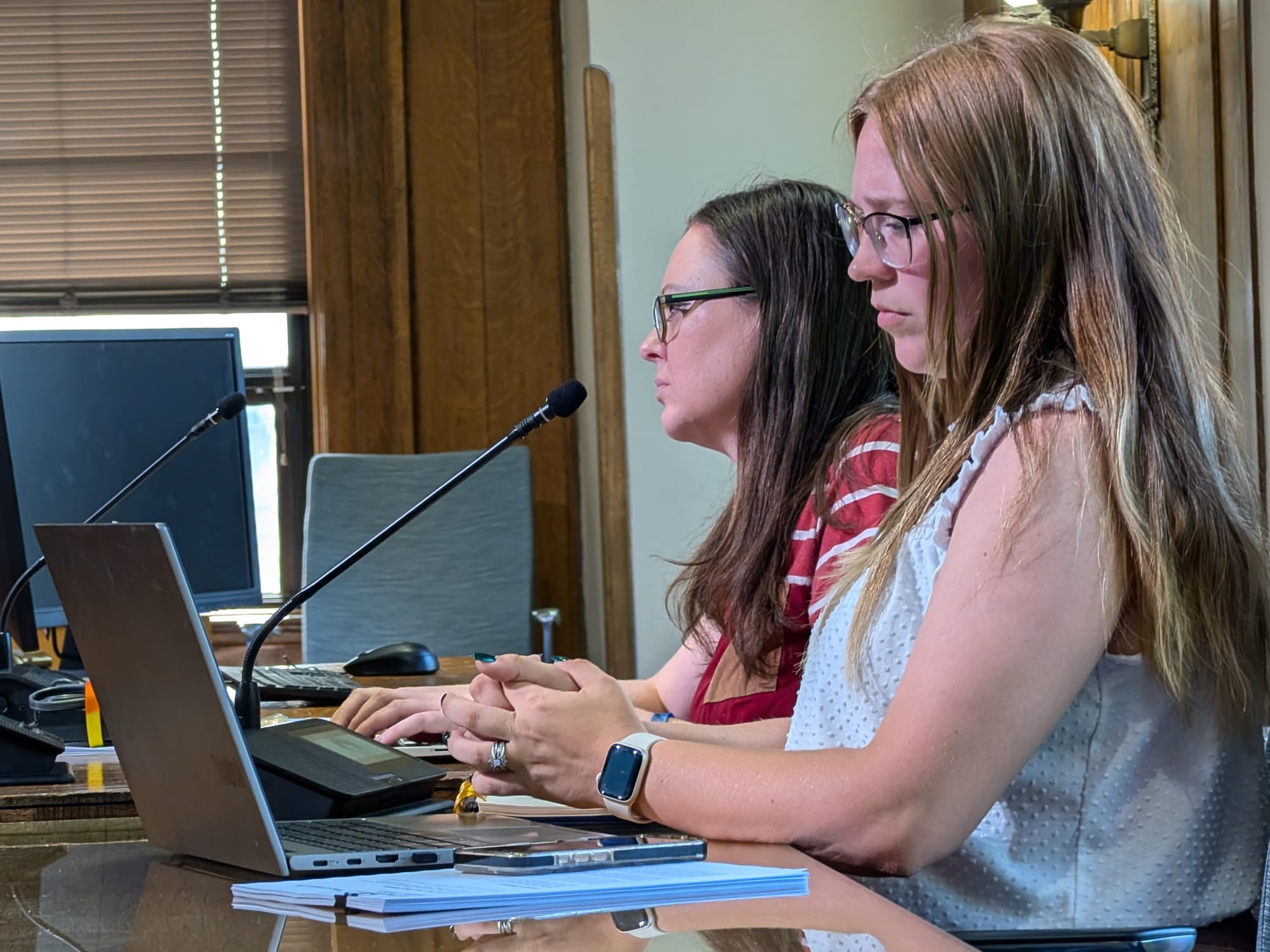

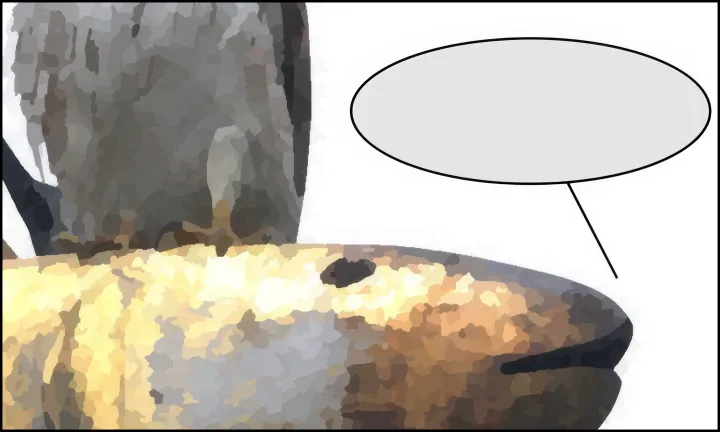


Comments ()